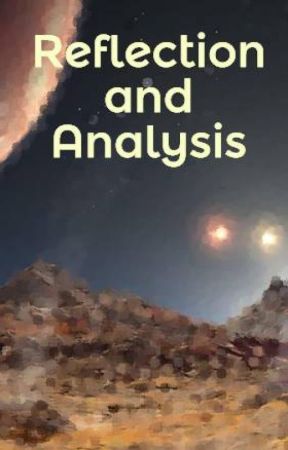I'm dyslexic.
For some people, I'm the last person they'd expect to have dyslexia. I'm able to not only read at a decent speed, but I have good reading comprehension. I've also written multiple fanfic stories. For some people, this is something a person with dyslexia should be incapable of, but in reality, this is no different than thinking that someone with physical disabilities couldn't possibly compete in sports. It's a misconception, one that's gone on for a long time.
However, this really isn't about my struggles with dyslexia, but about how certain people in fandom use "grammar" to bring other writers down.
I was going through the anonymous reviews on the other site I post to recently, and found one from 2009. Specifically, this review said "you should try learning the rules of grammar and using spell-check- your story needs serious editing" and "if you had written better it would have had the potential to become a good story, unfortunately in its present state it is very low-quality writing."
I remember how I felt when I got that review. I honestly felt like I'd failed. Sure, I could go on, reminding myself that grammar was my weak point, but to keep trying, and trying. In that, I didn't feel I failed, in the fact knew I wasn't the best writer out there, that I couldn't ever achieve what some of my favorite writers did. Looking back, I realized I was lying to myself just as much as those trying to bring me down were. I'm still the last person to say I'm the best writer, and whether I'm a good writer – I'll leave that to other people to judge.
No, I'm talking about telling myself "I can't", believing just as much as these people that I could never achieve anything. I believed the lie that grammar was a major deciding factor into what "good writing" was, so I never believed my writing to be "good writing". That was until I had others tell me something different, something I think is important to get across, but something which ultimately changed my own point of view. Not just of myself, but of writing in general.
For starters, these people are people I know off line, people who I admire. All of them are writers, ranging from poetry, creative writing to even academic writing. According to them, I am a good writer, but the mistakes I make grammatically – they're not that big of a deal. Actually, that's what peer review and the editing process is for, but many writers go through multiple drafts before they are able to put out a finished product, and sometimes even this they still end up editing for revised editions of their work. They didn't do it on their own either.
That's a start contrast to the lie I'd heard all my life. Specifically, I remember being made to feel bad for not being able to fix grammar issues on my own, yet I now know that writing doesn't exist in a vacuum like that. Even if someone doesn't have dyslexia or another learning disability, even if they're not a young writer, or a writer with the first language of English, there are very few people who can, on their own, turn out a grammatically perfect draft on their own. More importantly, most fanfic writers don't have Beta. A good Beta, particularly for grammar purposes, they're hard to come by. It's not as if you can easily approach someone offline like you can original fiction.
Yet there is this part of fandom which likes to bring writers down because of something out of their control. I get the fact some readers – they see grammar errors and it makes it hard for them to read the story – but that's no reason at all to bad mouth the piece pretty much ignoring every other element, yet also the hard work and creativity put into the piece. Because that's exactly what a person is doing when they put that much weight on grammar that it is the determining factor to whether a story is a "good story" or not.
I know that there are some people out there who are of that belief, that grammar is a make or break, but it's not. Grammar is the basic building block of a story, something everyone is expected to know. Add to this, we've got the added factor in creative writing where the rules differ from academia, that you can't simply turn to MLA, APA or Chicago and know the correct grammar one is supposed to use. Even beyond that, a creative writer may choose to do something abnormal, to break the rules of grammar to emphasize a point.

YOU ARE READING
Reflection and Analysis
RandomThis is a collection of essays related to series I either read or watch, although there is only one chapter at this point I wish to discuss.
